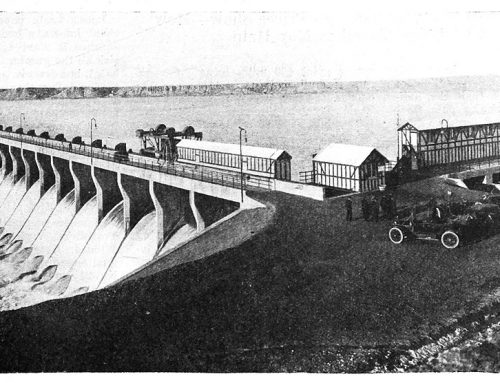 For as little as the average person can do with land that is submerged beneath rivers and other bodies of water, questions of ownership of such land have found their way into a surprising number of lawsuits. For rivers and creeks that are influenced by tides, the general rule is that the state owns submerged land beyond some point defined by the reach of the tide—the mean high-water mark in most states and mean low-water in some, like Virginia. Of course, there are exceptions to the general rule. In a recent eminent domain case in New Jersey, the owner of a parcel of land abutting the Hackensack River attempted to claim ownership of land beyond the mean high-water mark. The court ultimately rejected the claim, though it did not totally close the door on the landowner’s claim.
For as little as the average person can do with land that is submerged beneath rivers and other bodies of water, questions of ownership of such land have found their way into a surprising number of lawsuits. For rivers and creeks that are influenced by tides, the general rule is that the state owns submerged land beyond some point defined by the reach of the tide—the mean high-water mark in most states and mean low-water in some, like Virginia. Of course, there are exceptions to the general rule. In a recent eminent domain case in New Jersey, the owner of a parcel of land abutting the Hackensack River attempted to claim ownership of land beyond the mean high-water mark. The court ultimately rejected the claim, though it did not totally close the door on the landowner’s claim.
Despite the general rule described above, the landowner claimed that its property extended beyond the mean high-water line, which is typically the boundary of private ownership in New Jersey, because the legal description in its deed extended out to the bulkhead line. The landowner claimed that the state’s taking, which extended only to mean high water, failed to reach the intertidal and submerged land it claimed to own. The taking left this remainder, which the landowner could no longer access because all of its upland property had been taken, as an uneconomic remnant. The landowner asked the court to force the state to amend its taking documents to include the submerged land and compensate it for it.
The state, for its part, argued that the landowner’s assertion was procedurally improper and, in any event, was not supported by law. The court ultimately found that the landowner could procedurally ask the court to order the state to amend its taking to include the land at issue but also found that the landowner had not established ownership to the disputed land. Despite noting that the landowner’s claim would require the court to “rule against a century of established New Jersey jurisprudence” that set the mean high-water line as the boundary of private land ownership, the court did not fully shut the door on the landowner’s claim. Instead, it held that the eminent domain action was not the proper action to secure the additional review necessary to establish private ownership.
The case is New Jersey v. 550B Duncan Avenue, LLC, and was decided by the Superior Court of New Jersey at Docket No. HUD-L-1183-20 on March 3, 2021.
Matt Hull is a Pender & Coward attorney focusing his practice on eminent domain/right of way, local government, and waterfront law matters.



Leave A Comment